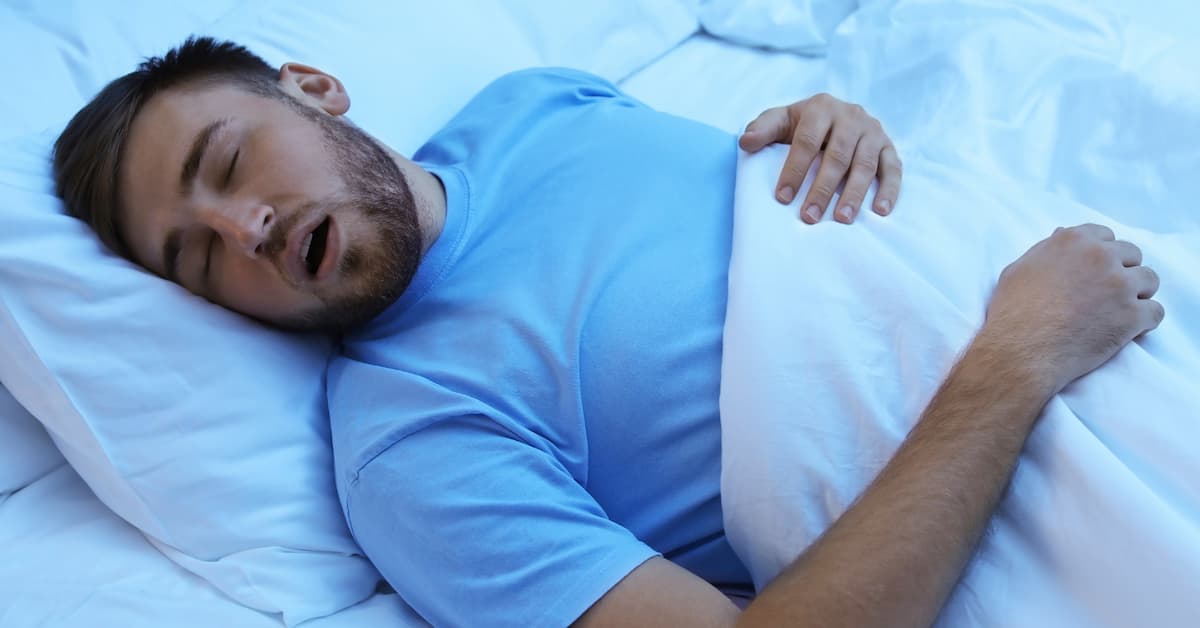Snoring is common and, in many cases, relatively benign. However, when snoring becomes frequent, disruptive, or accompanied by other symptoms, it may indicate the presence of sleep apnea. Although often overlooked, this sleep disorder can significantly impact both short and long-term health if left untreated. If you or a loved one experiences habitual snoring, persistent fatigue, or cognitive difficulties during the day, it may be time to distinguish between ordinary snoring and something more serious.
What Causes Snoring and When Is It Considered Normal?
Snoring occurs when airflow is partially obstructed during sleep, causing the tissues in your soft palate to vibrate. A variety of factors can contribute to snoring, including:
- Sleeping in a supine position (on your back)
- Nasal congestion or structural nasal issues
- The use of alcohol or sedatives before bedtime
- Excess weight, particularly around the neck
- Smoking, which can irritate the upper airway
In many cases, snoring is occasional and mild. For example, some individuals may snore during allergy season or after consuming alcohol. This type of snoring is generally not a cause for concern if it does not regularly interfere with sleep quality or daytime function.
However, persistent and loud snoring or snoring that occurs in conjunction with other symptoms may be a sign of obstructive sleep apnea, a condition that warrants professional evaluation.
Warning Signs That Your Snoring Could Be Sleep Apnea
Sleep apnea is characterized by repeated interruptions in breathing during sleep, often due to the relaxation of throat muscles that block the airway. These breathing pauses may last several seconds or longer and occur dozens or even hundreds of times per night. Most individuals with sleep apnea are unaware of these episodes, as the brain typically initiates micro-awakenings to resume breathing without full consciousness.
Key symptoms that may indicate sleep apnea include:
- Loud, chronic snoring, often reported by a partner
- Gasping, choking, or snorting sounds during sleep
- Observable pauses in breathing while asleep
- Persistent morning headaches or dry mouth
- Excessive daytime sleepiness or fatigue despite adequate time in bed
- Impaired focus, memory, or mood during the day
- Frequent nighttime awakenings or restlessness
When these signs are present, it is advisable to consider the possibility of sleep apnea, particularly when combined with risk factors such as obesity, high blood pressure, or a family history of sleep disorders.
A Modern Approach to the Evaluation of Snoring and Nighttime Disruptions
Historically, getting evaluated for sleep apnea meant visiting a specialist in person or spending a night in a clinical sleep lab. Today, Konk Sleep offers a more modern, accessible approach that begins with a virtual clinical interview and continues with expert-guided care from home.
Konk Sleep’s care process is clinically led, simple, and entirely virtual:
- Begin with a digital clinical interview that reviews your symptoms, medical history, and sleep concerns. This clinical intake is forwarded to a doctor licensed in your state, who will evaluate your health record and consider the diagnosis of sleep apnea/
- If a clinical diagnosis is made, you will have the opportunity to purchase the Konk care bundle.
- A modern, auto-adjusting APAP (automated positive airway pressure) device is delivered directly to your home.
- Virtual follow-ups and support with respiratory therapists are provided to ensure comfort, compliance, and long-term results.
There are no lab visits, and you will not have to wait months for answers. Instead, you will receive expert-guided care delivered on your schedule. Konk Sleep also accepts HSA and FSA payments and offers affordable monthly plans to make high-quality sleep care more accessible.
Why Early Diagnosis Matters for Your Long-Term Health
Sleep apnea is more than a nighttime inconvenience: It has significant implications for overall health. Repeated oxygen deprivation and sleep fragmentation can elevate stress hormones, increase blood pressure, impair glucose metabolism, and contribute to systemic inflammation.
Over time, untreated sleep apnea has been linked to:
- Hypertension and cardiovascular disease
- Type 2 diabetes and insulin resistance
- Increased risk of stroke and heart attack
- Mood disorders such as depression and anxiety
- Impaired memory and cognitive performance
Early identification and treatment of sleep apnea can dramatically improve sleep quality, reduce health risks, and enhance quality of life.
What to Expect from CPAP Therapy with Konk Sleep
Positive airway pressure therapy (PAP) is the gold standard of treatment for individuals diagnosed with obstructive sleep apnea. Konk Sleep provides auto-adjusting APAP devices that monitor your breathing in real-time and adjust air pressure as needed throughout the night.
Unlike traditional machines of the past, modern PAP devices are:
- Sleek and discreet in design
- Quiet and comfortable for consistent use
- Integrated with remote monitoring for clinical oversight
Patients who choose Konk Sleep benefit from guided onboarding, easy access to replacement supplies, and continuous virtual follow-up with licensed professionals. This model prioritizes convenience without compromising care.
A Smarter Way to Address Snoring and Improve Sleep Quality
Persistent snoring should not be dismissed, especially when it interferes with your rest or your partner’s. If you suspect your snoring may be related to a sleep disorder such as sleep apnea, a virtual-first assessment is a clinically sound approach to expedient diagnosis.

